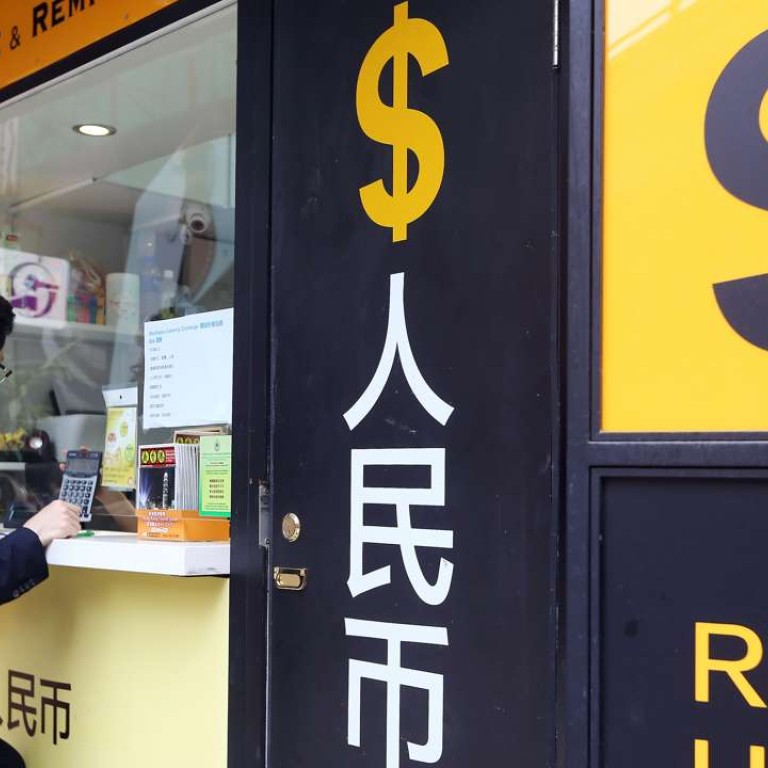
China’s forex market turnover surged, highlighting capital flight pressure
Turnover jumped 42 per cent to a record US$2.32 trillion last month as a faster falling yuan boosted demand for foreign exchange
Mainland China’s foreign exchange market showed substantially increased activity last month as faster yuan depreciation boosted demand for foreign currencies and led more businesses to tap into foreign exchange derivative markets for risk hedging.
Foreign exchange market turnover surged 42.33 per cent last month compared with October to a record US$2.32 trillion, State Administration of Foreign Exchange data released on Friday showed.
Turnover from January to last month was US$18.05 trillion, exceeding the US$17.76 trillion recorded for the whole of last year.
“The expectation for cheaper yuan has driven up the demand for foreign exchanges,” China Financial Futures Exchange chief economist Zhao Qingming said.
The yuan weakened 1.69 per cent against the US dollar last month alone, along with almost all other non-US dollar currencies, as the greenback gained strongly. The US dollar index surged more than 3 per cent last month on prospects of an interest rate increase from the United States Federal Reserve and rising inflationary expectations after Donald Trump won the presidential election. Stronger inflation in turn means a faster space of monetary tightening by the Fed next year.

Increasing two-way fluctuations of the yuan prompted more foreign exchange demand from individuals and business, and boosted foreign exchange trading in the interbank market.
According to SAFE data, interbank foreign exchange market turnover surged 45.8 per cent from a month earlier to US$2.02 trillion; turnover between banks and individuals increased 22.5 per cent to US$302 billion.
In addition, “more business has resorted to derivatives such as currency swaps, forwards, options to hedge risks arising from higher volatility”, Zhao said.
Turnover of the country’s foreign exchange derivative market surged 44.6 per cent to US$1.39 trillion, while spot market turnover grew 39 per cent month on month to US$931.8 billion.
The low base in October was one reason for the fast month-on-month growth. The week-long National Day holiday is in October.
I believe most of the trading is driven by real demand
“When the exchange rate fluctuation rises, it’s possible that some investors are trying to benefit from cross-border arbitrage,” Zhao said, adding: “I believe most of the trading is driven by real demand.”
It is widely expected the yuan will face intensified pressure as the demand for foreign exchange from both individuals and businesses increases in the run up to Lunar New Year; they will also be entitled to a new quota of US$50,000 worth of foreign exchange purchase on January 1. The yuan fell sharply in January last year.
China Merchants Securities chief macro analyst Xie Yaxuan said: “The impact of the renewed quota in the start of the new year may have been exaggerated.
“It’s true that there will be concentrated pressure on the yuan from January to February but the size, which is expected to be US$20 billion to 30 billion, is not very big and is unlikely to have too big an impact on the market, ” Xie said.
“The market rout in the beginning of 2016 is not caused by the size of foreign exchange purchase, but due to the panic arising from uncertainties,” Xie said.
Reacting to market speculation that authorities may cut the annual quota for individuals’ foreign exchange purchases, Tan Yaling, the director of China Foreign Exchange Investment Research Institute said: “the quota is unlikely to be changed in the new year.
“But the authority may change its approach to focusing on illegal foreign exchange purchases.”
